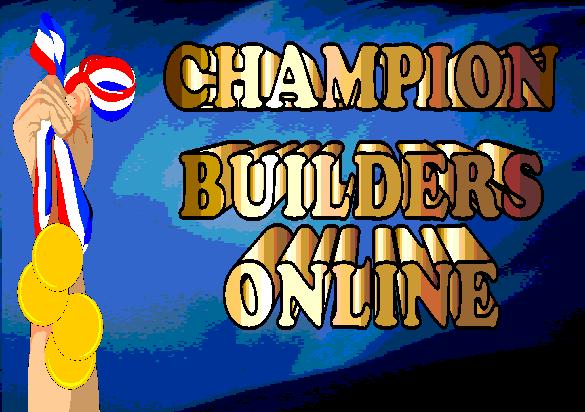 |
|---|
When considering criteria for establishing when one is on the pathway to becoming a champion, we will be interested in ideal qualities. Many people can be considered as champions, heros, spiritual warriors or brilliant stars without necessarily meeting all criteria. More importantly, from the dynamical systems perspective taken here, the qualities of a champion emerge over time and one can display these qualities at different developmental stages.
In addition, from this same dynamical or complex adaptive systems perspective, there is no single pathway whereby an individual becomes a champion. Rather many pathways can converge to a point where one displays excellent qualities of mind, body, and spirit. For example, one may chose the pathway of the study of self in terms of experiences and intuitions. This is the path chosen by many artists, craftsmen, and athletes. Others may focus on modeling themselves after one or more of the founders of a major world religion or religious movement. Still others may utilize the study of reasoning and thinking as is done in philosophy and the sciences. An additional pathway might be public or social service and meeting the needs of the weak, the young, the poor, or the downtrodden in our midst or by becoming involved in an important social issue such as racism, world peace, the equality of women and men, or sustainable economic development. A potential champion might be involved in commerce, business, or entrepreneurship or government service. Some may even wish to combine two or more of these pathways. What is important is that striving for excellence is taking place and is evidenced somehow in daily living. In childhood, we need to provide opportunities for children to explore as many pathways to becoming a champion as possible. As the child grows and demonstrates excellence or aptitude in one or more areas, he or she can be encouraged to develop a special expertise.
The family, educational system, and religious institutions are primary influences on the development of champions. People involved in these institutions must be trained to identify and develop the qualities of champions or find someone that can guide development. Every child needs to come into contact with trained experts in these different pathways multiple times throughout childhood.
As a champion grows and develops, striving for excellence in mind, body, spirit, and character, he or she will most likely get married, create a family, become parents and raise children. He or she will also choose a career, strive to become financially independent, and accept the social responsibilities of an adult. It is in these areas where adults display the qualities of a champion they developed during childhood and adolescence and where they continue to work on refining those qualities or developing new ones.
A model of human behavior presents a graphic representation of the components of mind, body, spirit, and behavior and the major influences on human growth and development. The model is based on principles of systems theory and cybernetics and depicts the dynamic interplay of the three components of mind (cognition or thinking and reasoning, affect or feelings and values, and conation or volition/will) with the biological/physical and spiritual aspects of self within the context or ecology that influence human growth and development.
Much of the material presented here has been developed for undergraduate- and graduate-level courses in educational psychology taught at Valdosta State University. I hope you find the material useful as you strive to become a champion and assist others to do so. Please come again.
Sign My Guestbook View My Guestbook ![]()
Return to:
Graphic developed by Mike Young {myoung@valdosta.edu}

Dr. William G. (Bill) Huitt
Dept. of Psychology, Counseling & Guidance
Valdosta State University
Valdosta, GA 31698-0001
Office: (912) 333-5613
FAX: (912) 259-5576
Copyright © 1995 -- Bill Huitt